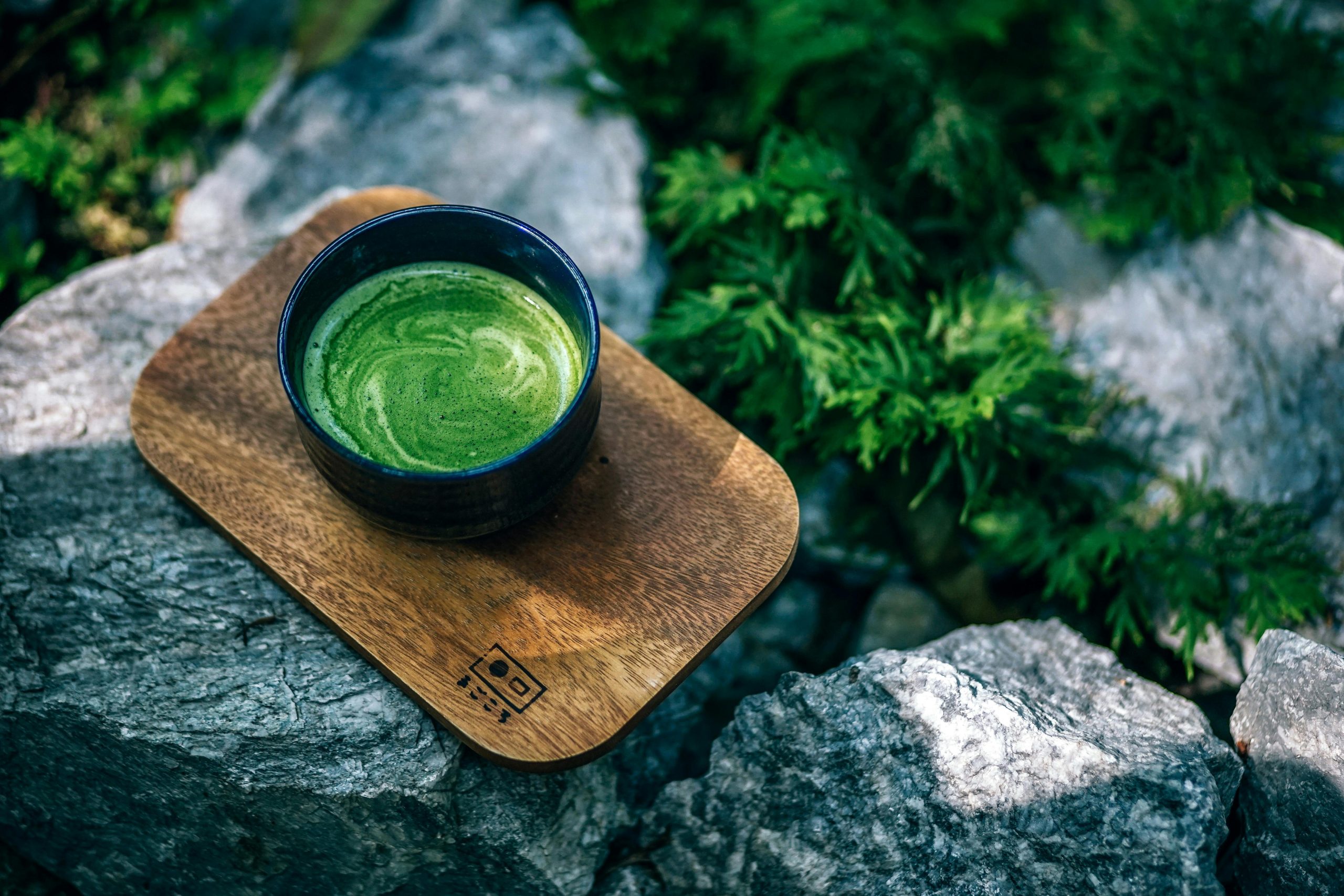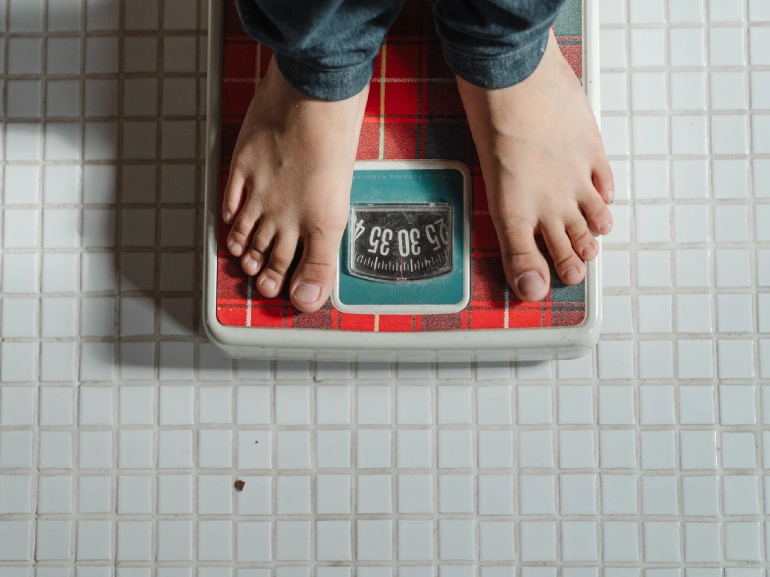Key Takeaways:
- Matcha and coffee both offer antioxidants and mental energy, but in different ways.
- Matcha provides a calmer, longer-lasting energy due to L-theanine.
- Coffee gives a quicker spike in alertness but may cause jitters or energy crashes.
- Both drinks have potential side effects if consumed in excess.
- Pregnant individuals should moderate caffeine intake from both beverages.
- Choosing high-quality matcha or coffee matters for safety and health benefits.
- Taste, ritual, and personal tolerance often dictate which drink is preferable.
If you’re someone who loves a morning boost, you’ve probably wondered whether matcha or coffee is better for your health. Both drinks promise energy, focus, and a cozy ritual, but there’s a lot more under the surface than just caffeine.
In this article, we’ll break down everything you need to know about matcha and coffee—from caffeine content to potential side effects—and help you decide which one might be healthier for your lifestyle.
What Is Matcha and How Does It Compare to Coffee?
Before diving into health comparisons, it’s important to understand what matcha really is. Matcha is a finely ground green tea powder made from specially grown tea leaves. Unlike traditional green tea, where you steep leaves and discard them, with matcha you consume the whole leaf, which means you get a higher concentration of nutrients and antioxidants.
Coffee, on the other hand, is brewed from roasted coffee beans. Its primary health benefits come from caffeine and certain plant compounds that act as antioxidants.
Here’s a quick comparison:
- Matcha: High in antioxidants (especially catechins), moderate caffeine, contains L-theanine for calming alertness.
- Coffee: Moderate to high caffeine, contains antioxidants like chlorogenic acid, can increase alertness quickly but sometimes leads to jitters.
How Much Caffeine Is in Matcha vs. Coffee?
Caffeine is often the first thing people compare. The good news is both beverages give you a boost, but they do it differently.
- Matcha: 1 teaspoon of matcha powder (about 2 grams) has roughly 60–70 mg of caffeine. The caffeine is released gradually because of L-theanine, leading to a calmer, longer-lasting energy boost.
- Coffee: An 8-ounce cup of brewed coffee typically contains 95–165 mg of caffeine, depending on the bean and brewing method. Coffee gives a sharper spike in energy but can also cause jitters or crashes.
Key takeaway: If you’re sensitive to caffeine, matcha might be gentler on your system while still keeping you alert.
What Are the Health Benefits of Matcha?

Matcha has gained popularity as a “superfood,” and for good reason. Some of its health benefits include:
- Rich in antioxidants: Matcha is packed with catechins, particularly EGCG, which may protect cells from damage.
- Supports mental clarity and focus: L-theanine works with caffeine to improve attention without the jittery effects common with coffee.
- Boosts metabolism: Some studies suggest matcha can help burn calories slightly faster.
- Detoxifying properties: Chlorophyll in matcha can help remove toxins from the body.
- Supports heart health: Antioxidants in matcha may help lower LDL cholesterol and reduce the risk of heart disease.
What Are the Health Benefits of Coffee?
Coffee is more than just a wake-up drink—it has its own impressive health profile:
- Antioxidant-rich: Coffee contains polyphenols and hydrocinnamic acids that can reduce inflammation.
- Enhances mental alertness: The higher caffeine content stimulates the nervous system and can improve focus.
- May reduce risk of certain diseases: Regular coffee consumption has been linked to a lower risk of type 2 diabetes, Parkinson’s disease, and some liver conditions.
- Improves physical performance: Caffeine can increase adrenaline levels and improve endurance for workouts.
Are There Any Side Effects to Watch Out For?
Even healthy drinks like matcha and coffee can have drawbacks depending on your tolerance, how much you consume, and when you drink them. While both offer benefits, it’s important to understand the potential side effects so you can enjoy them safely.
Matcha Side Effects
- Caffeine sensitivity: Although matcha contains less caffeine than coffee, it still has enough to affect sensitive individuals. Some people may experience mild insomnia, jitteriness, or nervousness if they drink matcha too late in the day or consume large amounts.
- Stomach upset: Drinking matcha on an empty stomach can sometimes cause nausea, bloating, or acid reflux. The high concentration of antioxidants and tannins in matcha may irritate the stomach lining for some people, so it’s often best to enjoy it after a light meal.
- Heavy metals risk: Lower-quality matcha can contain trace amounts of lead and other contaminants absorbed from the tea leaves. While the risk is generally low, it’s wise to choose high-quality, organic, ceremonial-grade matcha to minimize potential exposure.
- Interaction with medications: Some compounds in matcha, including caffeine and catechins, may interfere with certain medications, such as blood thinners or stimulant-sensitive prescriptions. Always check with a healthcare provider if you have concerns.
- Mild headache or dizziness: In rare cases, consuming too much matcha at once can lead to temporary headaches or lightheadedness, particularly if your body isn’t used to its caffeine and nutrient concentration.
Coffee Side Effects
- Jitters and anxiety: Coffee’s higher caffeine content can sometimes lead to feelings of nervousness, a rapid heartbeat, or restlessness, especially for those prone to anxiety or who drink multiple cups in a short period.
- Digestive issues: Coffee is acidic and can irritate the stomach lining, which may worsen heartburn or acid reflux. Drinking coffee on an empty stomach or in large quantities increases this risk.
- Sleep disturbances: Caffeine can interfere with sleep cycles. Drinking coffee late in the afternoon or evening can make it harder to fall asleep, reduce sleep quality, and even cause daytime fatigue.
- Addiction and withdrawal: Regular coffee consumption can create mild dependency. Skipping your usual cup may result in headaches, fatigue, irritability, or difficulty concentrating.
- Bone health concerns: Excessive coffee intake (more than 4 cups per day) may slightly reduce calcium absorption, which could affect bone density over time.
How Does the Body Absorb Caffeine from Matcha vs. Coffee?
One of the biggest differences between matcha and coffee is how your body experiences the caffeine, which also affects side effects.
- Matcha: The caffeine in matcha is naturally bound with L-theanine, an amino acid that promotes relaxation. This combination leads to a slower, steadier release of energy. Many people report feeling alert and focused but calm, without the rapid energy spikes or crashes typical of coffee. This smoother caffeine release also means less risk of jitteriness or sudden anxiety.
- Coffee: Caffeine in coffee is absorbed more quickly by the body, giving a faster energy boost. While this can be great for waking up quickly or powering through a task, it can also cause jitters, anxiety, or a mid-morning crash. The rapid spike and drop of energy can sometimes leave you feeling drained or craving another cup too soon.
Understanding these differences can help you choose the drink that works best for your lifestyle, sensitivity, and energy needs.
Is Matcha Safe During Pregnancy?
This is a question many people ask, and the answer depends on moderation.
- Pregnant individuals are generally advised to limit caffeine intake to under 200–300 mg per day.
- One serving of matcha contains about 60–70 mg, so it can be consumed safely in moderation.
- Always consult with a healthcare provider, especially if you are sensitive to caffeine or have pregnancy-related conditions.
Can Coffee Be Safe During Pregnancy?
- An 8-ounce cup of brewed coffee contains about 95–165 mg of caffeine, so one cup is usually within the safe limit for most pregnancies.
- It’s important not to exceed daily caffeine limits to avoid potential risks like low birth weight or preterm birth.
- Decaf coffee is an alternative, but it still contains small amounts of caffeine.
Matcha vs. Coffee: Which Is Better for Energy and Focus?
If your main goal is mental alertness and sustained focus, both matcha and coffee can help—but in very different ways.
Matcha: Calm, Sustained Energy
Matcha contains caffeine, but it’s naturally paired with L-theanine, an amino acid that promotes relaxation without drowsiness. This unique combination offers:
- Longer-lasting focus: Instead of a sudden spike, matcha provides a steady release of energy over several hours.
- Reduced jitters: Many people report alertness without feeling shaky or anxious.
- Enhanced cognitive performance: Some studies suggest L-theanine can improve attention, memory, and reaction time.
- Gentler on the stomach: Compared with coffee, matcha is less acidic, making it easier to drink on an empty stomach for most people.
Tip: Drinking matcha mid-morning or during an afternoon slump can keep your energy levels steady without the crash that often follows coffee.
Coffee: Quick Energy, Potential Crash
Coffee delivers a fast, strong caffeine boost that can help you power through tasks quickly. Key points include:
- Rapid alertness: The caffeine hits your system fast, making it ideal if you need a sharp wake-up in the morning or a quick pick-me-up.
- Energy spikes and crashes: The fast absorption can lead to jitters, anxiety, or a mid-morning energy drop.
- Mental stimulation: Coffee can improve short-term memory, mood, and overall mental performance.
Pro tip: Pairing coffee with a small snack or adding a bit of matcha can smooth out the energy spike and reduce jitters.
Combining Matcha and Coffee
Some people enjoy a “matcha latte coffee” or add a small scoop of matcha powder to their coffee. The result:
- Balanced energy: Coffee gives the quick alertness, while matcha adds calm, sustained focus.
- Fewer crashes: The L-theanine in matcha reduces the likelihood of sudden energy drops.
- Unique flavor: Earthy matcha notes complement the roasted coffee taste.
This combo can be a great choice for those who need both immediate and sustained energy throughout a busy day.
Matcha vs. Coffee: Which Supports Weight Loss Better?
Both beverages can support weight management, but they do it in slightly different ways.
Matcha: Boosting Metabolism Naturally
Matcha is rich in catechins, particularly EGCG, a compound shown to slightly increase fat oxidation and calorie burning. Benefits include:
- Enhanced fat burning: Studies suggest matcha can increase calorie burning during moderate exercise.
- Metabolism support: Catechins help your body convert stored fat into energy more efficiently.
- Calming effect for appetite control: L-theanine may help reduce stress-related cravings.
- Rich in antioxidants: Supports overall health while aiding weight management.
Tip: Drinking matcha before a workout or as part of a balanced breakfast may help maximize its metabolism-boosting effects.
Coffee: Quick Metabolism Boost
Caffeine in coffee also stimulates metabolism and can improve physical performance:
- Energy for exercise: Caffeine increases adrenaline levels, helping you work out longer or harder.
- Temporary calorie burn: Caffeine can slightly increase your metabolic rate, though effects vary by individual.
- Appetite suppression: Some people find coffee temporarily reduces hunger, though this is usually short-lived.
Tip: Avoid loading coffee with sugar or cream if weight loss is your goal; black coffee or lightly sweetened options are best.
Verdict: Which One Has the Edge?
- Both matcha and coffee can aid in weight management when consumed sensibly.
- Matcha may have a slight edge due to its antioxidants, L-theanine, and gentler, more sustained metabolism boost.
- Coffee still provides a strong performance-enhancing effect, especially for workouts, but may be less calming for long-term energy balance.
How to Safely Enjoy Matcha
Start Small
Begin with ½ to 1 teaspoon of matcha per day, especially if you’re new to it. This allows your body to adjust to the caffeine and concentrated antioxidants. Starting small also reduces the risk of mild insomnia, jitteriness, or stomach upset, giving you a chance to see how your body reacts before increasing your intake.
Choose High-Quality Matcha
Opt for ceremonial-grade or first-harvest (Ichibancha) matcha. First-harvest leaves are harvested after winter rest, giving the tea more time to absorb nutrients, amino acids like L-theanine, and natural sweetness, which balances the bitterness of catechins. Blends with second-harvest leaves are acceptable, but later harvests are more astringent and less rich in flavor and nutrients.
Pay Attention to Color, Aroma, and Texture
Quality matcha has a vibrant, bright green color, a fresh vegetal aroma, and a silky smooth texture when whisked. Lower-grade matcha often appears yellowish or brownish, smells flat, and can taste powdery or overly bitter. Visual and sensory cues are good indicators of freshness and nutrient density.
Limit Added Sugar and Additives
While lattes and flavored drinks are popular, sweeteners and syrups can counteract matcha’s health benefits. Using unsweetened milk, a dash of honey, or natural sweeteners can maintain the antioxidant content and prevent excess calorie intake.
Time Your Consumption Wisely
Because matcha contains caffeine, drinking it in the morning or early afternoon is ideal. The L-theanine in matcha slows caffeine absorption, providing a steady, calm energy boost without the jitters or mid-day crashes common with coffee. Avoid late-evening consumption to protect your sleep cycle.
Experiment and Adjust Gradually
Once you’re comfortable with the effects and taste, you can slightly increase the amount, mix first and second-harvest leaves for flavor balance, or explore different brewing methods. Adjusting gradually ensures you get the maximum benefits without overloading on caffeine or antioxidants at once.
How to Safely Enjoy Coffee
Limit Intake
Stick to 1–2 cups of coffee per day to minimize the risk of negative side effects, such as jitters, rapid heartbeat, or digestive discomfort. For people particularly sensitive to caffeine, even a single cup may be enough to provide alertness without overstimulation.
Avoid Excess Sugar and Cream
Specialty coffee drinks, like flavored lattes or frappes, can be high in sugar and calories, which may offset the health benefits of coffee. Try black coffee, lightly sweetened options, or unsweetened plant-based milk to keep your beverage both enjoyable and healthier.
Listen to Your Body
Everyone reacts differently to caffeine. If you notice increased anxiety, restlessness, heart palpitations, or difficulty concentrating, consider reducing your intake or switching to a lower-caffeine brew. Paying attention to how your body responds is key to safely enjoying coffee.
Consider Timing
Coffee is best consumed in the morning or early afternoon. Drinking it late in the day can interfere with sleep quality, reduce overall rest, and even contribute to next-day fatigue. Pairing coffee with a balanced breakfast or snack can help reduce potential stomach irritation and stabilize energy levels.
Experiment with Brewing Methods
Different brewing techniques—like pour-over, French press, or cold brew—affect the flavor, acidity, and caffeine content. Experimenting can help you find a style that suits your taste while minimizing side effects.
Be Mindful of Overall Caffeine Intake
Coffee isn’t the only source of caffeine. Tea, chocolate, energy drinks, and certain medications also contribute. Keeping track of your total daily caffeine can help you avoid exceeding your personal tolerance.
Matcha or Coffee: Taste and Ritual Differences
- Matcha: Requires whisking or blending, which can be a mindful, calming ritual. Its taste is earthy, vegetal, and slightly sweet.
- Coffee: Quick to brew, comes in many flavors, and offers a strong, roasted taste. Many people enjoy the convenience of drip coffee or espresso.
Choosing one over the other often comes down to lifestyle and preference, not just health.
How Often Can You Drink Matcha or Coffee?
- Matcha: 1–2 cups per day is typically safe and beneficial for most adults.
- Coffee: 1–3 cups per day is generally safe for most adults, keeping caffeine intake in check.
Can You Mix Matcha and Coffee?
Yes, and some people swear by it. A blend of matcha and coffee can:
- Provide the fast energy boost of coffee with the sustained focus of matcha
- Reduce the jitters often caused by coffee alone
- Create a unique flavor experience
Experiment with ratios to find what works best for you.
Final Verdict: Is Matcha Healthier Than Coffee?
The answer depends on your goals and sensitivity to caffeine. If you want a gentle, sustained energy boost with added antioxidants and a calming effect, matcha may be the better choice. If you prefer a stronger, faster energy kick and enjoy the taste and convenience of coffee, coffee can still be part of a healthy lifestyle.
In reality, both beverages can be enjoyed safely and healthily when consumed in moderation. Understanding your body, caffeine tolerance, and lifestyle will help you make the best choice.



